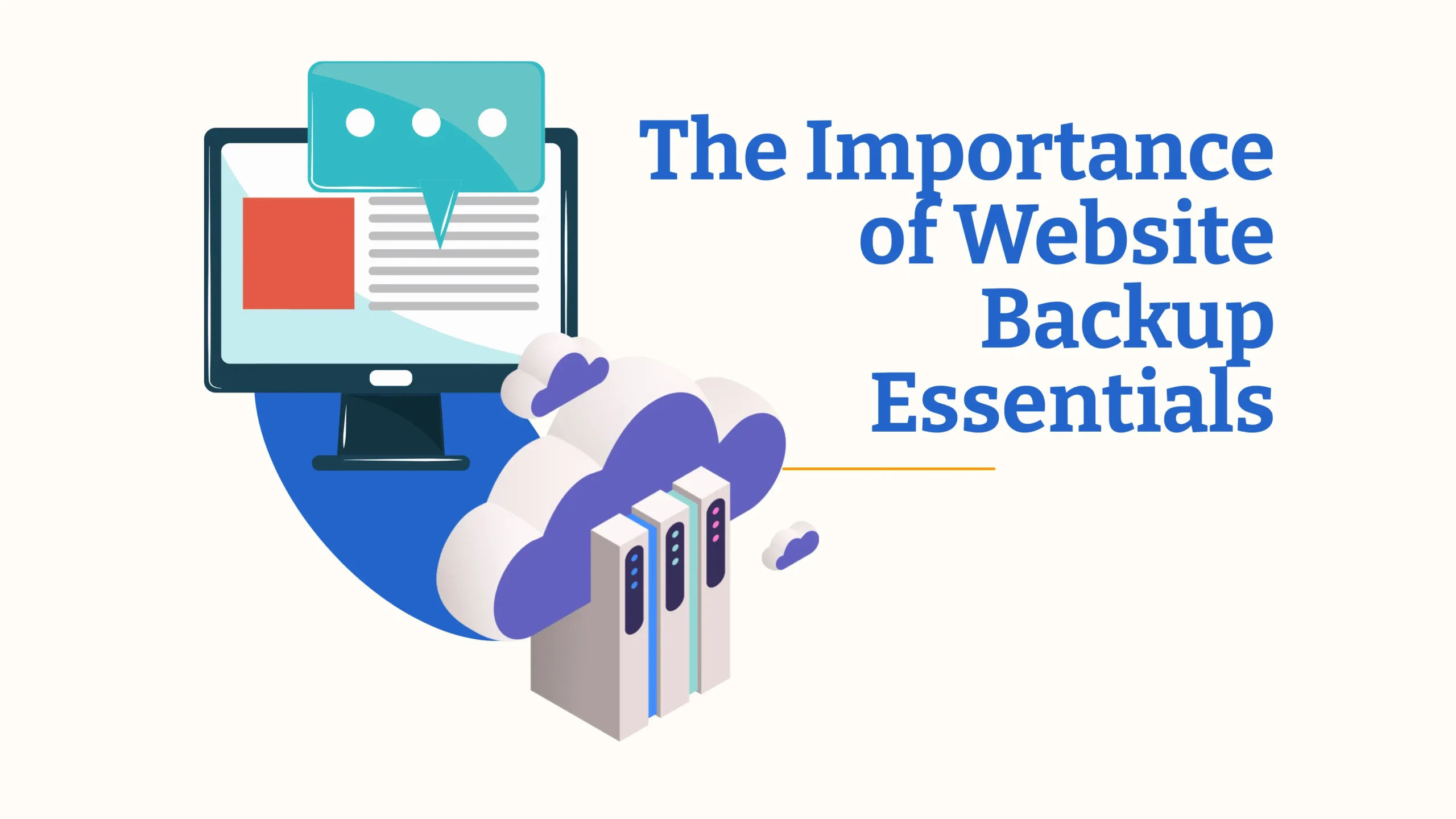What is Website Backup Essentials?
Website backup essentials refer to the critical tools and practices used to create backups of your website. These include web-based tools, apps, and cloud services, all designed to help you protect your website data and restore it quickly in case of a disaster. A website backup ensures that all your critical information, including content, images, files, and databases, is securely saved.
- Web-based Tools: These tools are accessible through any device with an internet connection and are designed to help you back up your website.
- Mobile Apps: Mobile apps allow you to back up your website directly from your mobile device.
- Cloud Services: Cloud services store your website's data on remote servers, ensuring easy recovery in case of server failure.
What Are the Most Important Things to Remember When Backing Up Your Website?
While backing up your website, it’s crucial to focus on the essential elements:
- Content: Your website’s content should be prioritized. This includes all text, images, and multimedia files that make up your site's structure.
- Databases: Make sure to back up all databases, including those containing user data and other critical information.
- Files: Backing up files such as scripts, themes, and plugins is important for restoring your site’s functionality.
Avoiding Common Mistakes When Backing Up Your Website
To ensure your website is fully protected, it’s essential to avoid common backup mistakes:
- Lack of Backup Plans: Many website owners neglect to plan for regular backups. This leaves them vulnerable to unexpected issues like server failures or security breaches.
- Not Regularly Testing Backups: It’s crucial to test your backups regularly to ensure they’re working correctly. A backup that fails during recovery is useless in a crisis.
- Incomplete Backups: Avoid the mistake of not backing up all your files and data. A partial backup can leave you with missing content and functionality when you need it most.
- Incorrect Timing for Backups: Always back up your site before making any significant changes or updates to avoid losing data during updates.
- Outdated Backup Software: Ensure that your backup software is up-to-date to avoid compatibility issues and security risks.
The Benefits of Backing Up Your Website
Having a reliable backup system offers immense benefits:
- Instant Recovery: In case of a website crash, you can restore your site quickly, minimizing downtime.
- Protection from Natural Disasters: A backup ensures that your website data is safe from natural calamities and other unforeseen events.
- Peace of Mind: Knowing that your data is secure allows you to focus on growing your business without constant worry about potential data loss.
Essential Website Backup Tips
To safeguard your website, consider these important backup tips:
- Back Up to External Storage: Always back up your website data to an external hard drive or cloud storage service. Tools like Carbonite and Mozy can automate this process.
- Backup Multiple Websites on the Same Drive: If you own multiple websites, ensure they’re all stored on the same drive to prevent any mix-ups in case of an emergency.
- Separate Important Documents: Important files like invoices, contracts, and tax returns should be backed up separately from your website data to prevent losing them in case of a hardware failure.
- Store Backups in Multiple Locations: Keep multiple copies of your backups in different physical or cloud locations. This ensures that, in case of a disaster, one copy will always be available for recovery.
Key Backup Principles: ESSENTIAL
As a website administrator, it’s crucial to adhere to the ESSENTIAL principles of website backup:
- E - Evaluate: Regularly evaluate and test your backups to ensure their reliability.
- S - Schedule: Set a regular backup schedule that works with your daily routines.
- S - Stick to It: Consistency is key. Adhere to your backup schedule, even if it feels like a hassle.
- E - Eliminate: Only back up essential data. Eliminate unnecessary files to optimize storage.
- N - No Complacency: Never become complacent. Stay vigilant about backing up your website.
- T - Trust: Trust the backup process, knowing that it will protect your website.
- I - Automate: Automate your backup process using reliable tools to save time and effort.
- A - Adapt: Be flexible and adapt to new tools or methods to improve your backup process.
- L - Learn: Stay updated on new backup techniques and best practices to enhance your website’s security.
Conclusion: Be Prepared for the Unexpected
Website backups are a crucial part of any business’s digital strategy. Without them, you risk losing your website data due to unexpected events like server crashes, security breaches, or natural disasters. By following the above best practices, you ensure that your website is protected and can be quickly restored with minimal downtime.
By implementing automated backups and regularly reviewing your backup process, you can safeguard your website and avoid unnecessary stress in times of crisis. Always remember that prevention is better than cure, and being prepared can save your business from severe setbacks.
